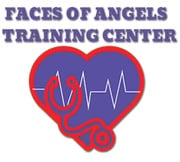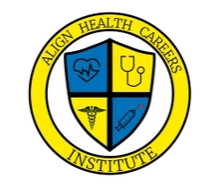
Financial aid (may be available)

$350 to start
$1,000 total

Financial aid (may be available)

Financial aid (may be available)

Financial aid (may be available)

Financial aid (may be available)

$450 to start
$1,246.50 total
$330 total

$672.50 to start
$1,345 total

No cost info
$1,550 total
$4,075 total
$1,200 total

$400 total
No cost info
No cost info
According to the U.S. Department of Health and Human Services (HHS), over 17.9 million blood transfusions occur annually in the U.S., and with Dallas/Fort Worth making up roughly 2.3% of the national population, the region alone accounts for an estimated 412,000 transfusions each year. This high demand fuels the need for trained professionals like phlebotomists, making this a great career path in healthcare.

Phlebotomy is the practice of collecting blood samples from patients for testing, donation, or transfusion. A phlebotomist ensures blood draws are safe, sterile, and properly labeled for accurate lab processing. They often work in hospitals, clinics, laboratories, and blood donation centers.
To become a phlebotomist in Texas, you'll typically need:
The fastest way to become a phlebotomist is by enrolling in a short program such as a 3-day seminar or a 6-week evening course. Many programs offer hybrid formats to help you get started quickly while working around your schedule.
Here are two standout phlebotomy programs to consider:
Some local schools offer hybrid programs, where theory is taught online and clinical work is completed onsite. These are ideal for students needing flexibility.
Workforce programs or employer-sponsored training may offer free or subsidized phlebotomy courses for qualifying applicants. Check with local hospitals, clinics, and workforce centers.
To become certified:
Phlebotomists in Dallas/Fort Worth work in a range of healthcare settings:
Major employers in the region include:
Most programs take 6 to 16 weeks, depending on the format and clinical hours required.
Phlebotomy is typically a non-degree certificate program, lasting a few weeks to a few months—less than a year.
The fastest option is a 3-day seminar like the one at TSC Career Institute, or a 6-week accelerated course with evening classes.
Yes. With stable pay, short training, and steady job growth, phlebotomy is a great entry point into the healthcare industry in Texas.
Phlebotomy is a fast, affordable path into the healthcare field—and Dallas/Fort Worth is a great place to get started. With options ranging from 3-day seminars to 6-week certification programs, you can train quickly and start earning in a high-demand field. Whether you’re looking for flexibility, job security, or a stepping stone to other medical roles, phlebotomy is a strong career choice.
Looking for more career training programs in Dallas/Fort Worth? Check out:
Dreambound's platform allows prospective students to find the right educational program for them through searching, filtering, and connecting with our extensive selection of career & technical education partners.
Dreambound has over 70 programs across healthcare, technology, business, and industrial trades. This includes programs such as Medical Billing, Cybersecurity, and welding.
Some of our schools offer financial aid for those who qualify. Many others offer payment plans, where you can pay the cost of class over time.
Yes, Dreambound offers many online programs. On Dreambound's search, you can filter by online, in-person, and hybrid (part online, part in-person).
Dreambound is completely free for you to use! We are supported by schools and organizations who pay to advertise on our website, so we can offer all of our career resources for free.